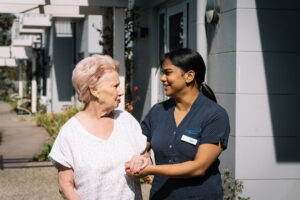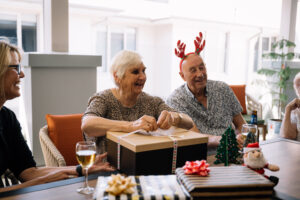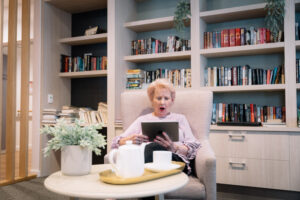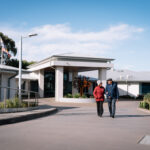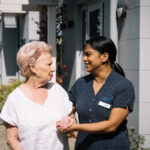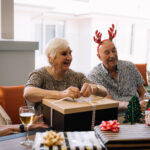The recent morning chill and lower daytime temperatures has us all having to acclimatise to the cold once again. Older people are less physically active, making them more susceptible to the effects of cold weather due to factors such as:
- Poor blood circulation.
- Decreased metabolic rate. Ageing bodies often struggle to generate enough heat to maintain a normal body temperature of 36-37c.
- Thinning of the fat layer beneath the skin.
- Side effects from certain medications.
- Medical conditions such as thyroid disease or high cholesterol.
Signs of cold sensitivity can manifest in various ways beyond just feeling cold or shivering. Be aware of these signs:
- Slower breathing rate.
- Pale Skin.
- Confusion.
- Drowsiness.
- Loss of co-ordination
- Undue fatigue.
- Memory loss.
There are a several strategies to help the elderly keep warm and comfortable during the colder months:
- Raise the ambient temperature, ensuring their living space is kept at a comfortable temperature.
- Improve home insulation. Retain heat indoors and draft-proof doors and windows.
- Provide warm beverages such as tea/coffee or a cup of Milo or Soup to maintain body heat.
- Warm the bed. Use an electric blanket, or layer multiple blankets instead of a single heavy blanket or doona.
- Dress in layers beginning with thermal basics like a vest to trap body heat more effectively.
- Encourage regular movement such as walking to generate body heat.
- Provide a heat pack such as a wheat pack, or hand warmers which can be heated quickly in the microwave.
- Encourage nutritious eating by serving hearty soups and meals rich in nutrients to support a healthy immune system.
- Ensuring your loved one has their flu vaccination before winter, as flu can progress to a serious condition like pneumonia.
Interestingly, some studies suggest that a low body temperature may be linked to a long life! Scientists believe that the hormonal changes that conserve energy and heat by slowing down the metabolism, can also extend life expectancy. Assisting the elderly to best cope with the cold just takes a little preparation and care. By taking these steps, we can ensure they remain warm, comfortable and healthy throughout Winter.
If you would like more information or to take a tour of one of our homes call us on 1300 104 663 or contact us here.

